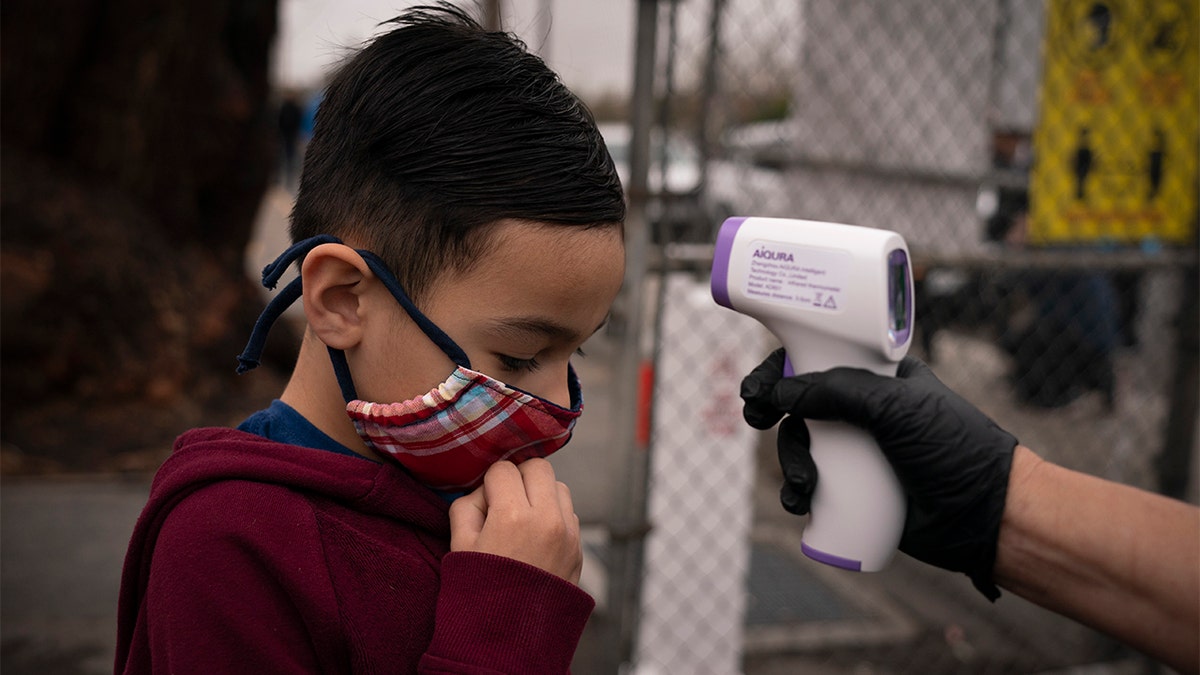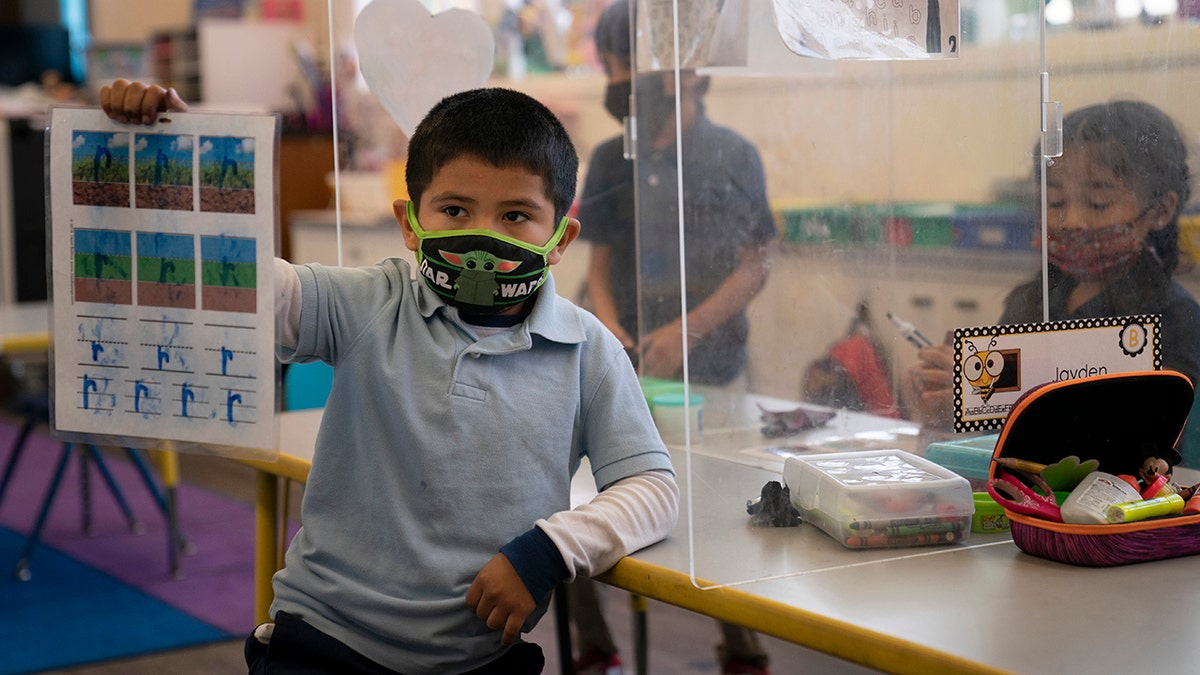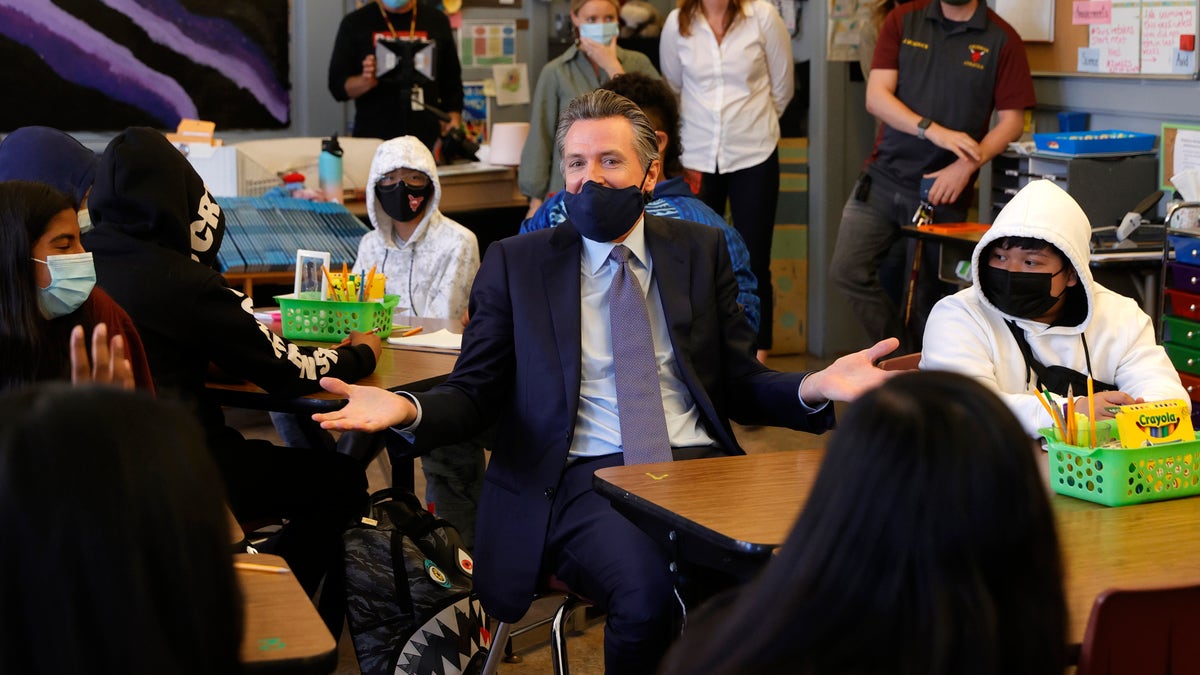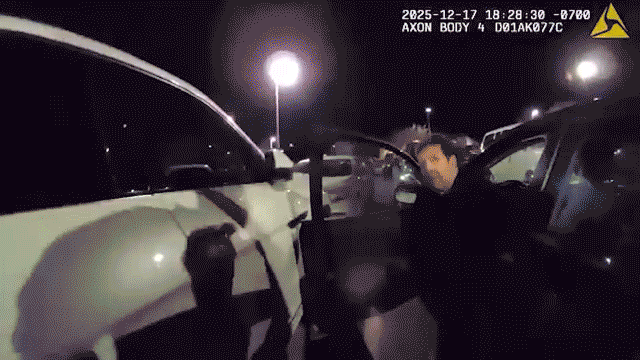We have robbed our children of academic achievements: Perino
‘The Five’ panelists discuss the impact pandemic lockdowns have on children’s mental health.
California students suffered academically during the 2020-2021 school year amid COVID-19 lockdowns — especially in math, according to a new report from the California Department of Education (CDE).
The results stem from a student performance assessment conducted during the 2020-2021 school year when most public school students were partaking in remote learning. The majority of California public schools returned to in-person or hybrid learning by the spring of 2021.
"Our road ahead is clear — we must continue to focus our energy and resources in supporting our students, families, and educators so they not only recover from the impacts of COVID-19 but thrive in days ahead," State Board of Education President Linda Darling-Hammond said in a Friday statement. "This must remain our top priority."

Adam Alvarado, 6, gets his temperature checked on the first day of in-person learning at Heliotrope Avenue Elementary School in Maywood, Calif., Tuesday, April 13, 2021. (AP Photo/Jae C. Hong)
Minority students fared worse academically, with more than 60% of Black and Latino students not meeting English standards and about 80% of minority students not meeting math expectations. Various U.S. studies have shown that the COVID-19 pandemic and school lockdowns put lower-income and minority students at a significant disadvantage due to a lack of available resources such as computers and WiFi.
Overall, 49% of all students in all grade levels between three and 11 met or exceed expectations in English Language Arts. More than 21% of students exceeded ELA standards and nearly 28% met standards while about 23% almost met standards and 28% did not meet standards.
SAN FRANCISCO, OAKLAND TEACHERS DEMAND DISTRICTS TAKE MORE COVID-19 PRECAUTIONS, PLAN SICKOUTS
A surprising 41% of students in all grade levels did not meet math standards.
Only 34% of students in all grade levels met or exceeded expectations in mathematics. Only about 16% exceeded expectations in math and 18% met expectations while 25% almost met expectations.

FILE - In this March 18, 2021, file photo, Cesar Verdugo, 5, shows his work to his teacher in a pre-kindergarten class at West Orange Elementary School in Orange, Calif. (AP Photo/Jae C. Hong, File)
Third and fourth graders showed the most academic strength in math, with about 40% of students in both grade levels meeting or exceeding expectations, while less than 35% of students in all other grade levels met or exceeded standards.
While about half of students in higher grade levels between eight and 11 met or exceeded ELA standards, nearly 40% of third and fourth-graders in the state did not do the same.
Compared to the 2018-2019 school year (the CDE did not list data for the 2019-2020 school year), fewer third and fourth-graders met or exceeded general academic expectations while about the same percentage nearly met expectations. A greater percentage of third and fourth-graders did not meet academic standards at all.
US SCHOOLS CLOSE AGAIN AS CHILDREN'S MENTAL HEALTH DECLARED NATIONAL CRISIS
Fewer fifth-graders exceeded academic expectations, but more fifth-graders met expectations. A greater percentage of fifth-graders did not meet academic standards.
There was a 10% drop in the percentage of sixth-grade students exceeding academic standards, but a 5% increase in students meeting standards. The number of sixth-graders not meeting expectations stayed almost the same. Seventh and eighth graders saw a less significant decrease in academic achievement compared to the 2018-2019 school year.

California Gov. Gavin Newsom talks with 7th grade students at James Denman Middle School on October 01, 2021 in San Francisco, California. (Photo by Justin Sullivan/Getty Images)
Surprisingly, more 11th-graders exceeded academic standards in 2020-2021 compared to 2018-2019. The percentage of those who did not meet expectations remained almost the same.
California Gov. Gavin Newsom approved a $123.9 billion education spending package — the most funding for K-12 education in California's history — in July. The funding will go toward "the expansion of after-school and summer programs to accelerate learning and the creation of full-service community schools to address student mental health and wellness needs," according to a press release from the CDE.
CLICK HERE TO GET THE FOX NEWS APP
"I am grateful to the Legislature and Governor Newsom for last year’s historic education package that provides a record-high level of funding to help transform our system to one dedicated to addressing all the impacts of COVID-19 on our students—academic, behavioral, social-emotional and physical," Darling-Hammond said in her statement.
Newsom received some criticism during the pandemic, however, for keeping students remote longer than other U.S. states.










































